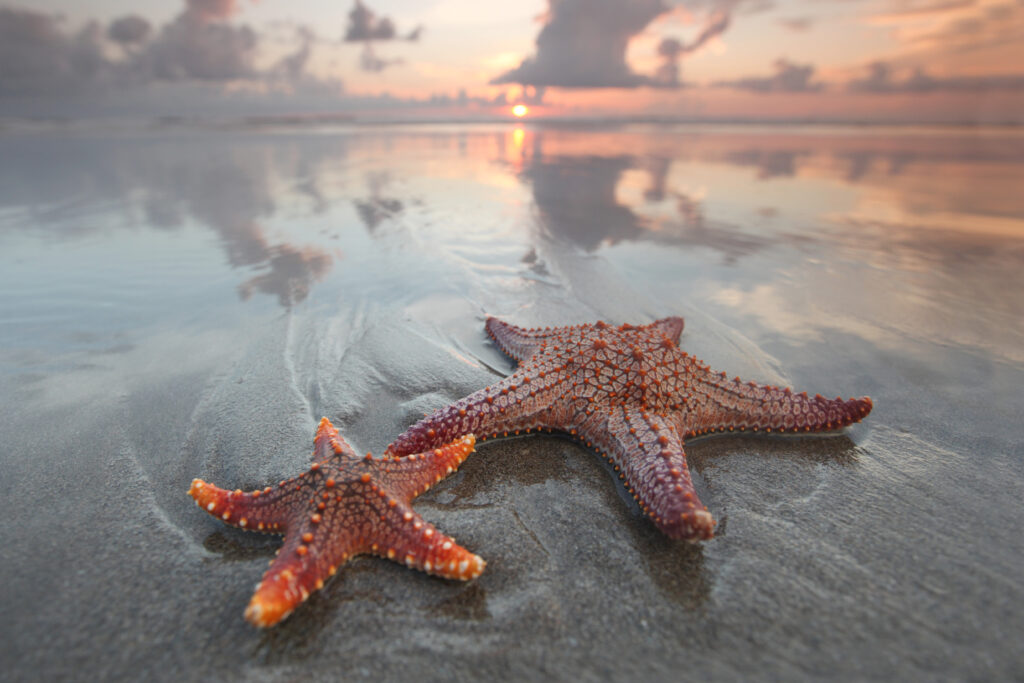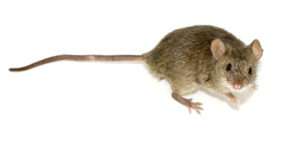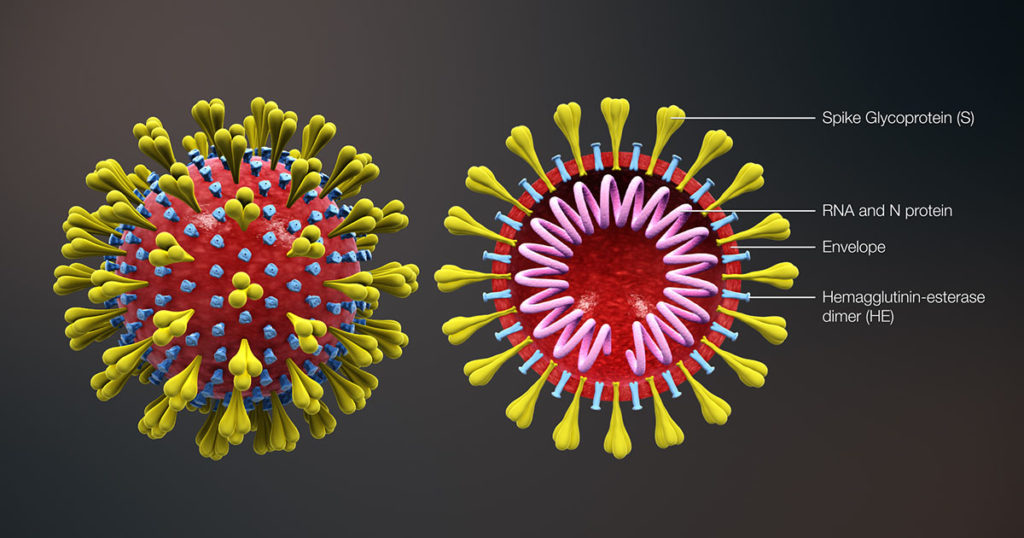
Most animals in the world are what biologists refer to as “bilateral”—their left and right sides mirror one another. It is also typically easy to tell which part of most animals is the top and which is the bottom. The anatomical arrangements of certain other animals, however, are slightly more confounding, for instance in the case of echinoderms, which include sea urchins, sand dollars and starfish. These animals are “pentaradial”, with five identical sections of the body radiating from a central axis. The question of how these creatures evolved into such a state has been a puzzle pondered by many a biologist, with little progress made until recently. In a new study published in Nature, scientists closely examining the genetic composition of starfish point to some key evidence that suggests a starfish is mostly just a head.
Starfish are a deuterostome, belonging to the superphylum Deuterostomia. Most deuterostomes are bilateral, leading scientists to believe that, despite their peculiar body plan, starfish evolved from a bilateral ancestor. This is supported by the fact that starfish larvae actually start out bilateral, and eventually transform into the characteristic star shape. But where the head of the starfish is, or whether it even has one, has proved difficult for scientists to parse out, especially since their outward structure offers no real clues.
There have been a number of theories posited, such as the duplication hypothesis—where each of the five sections of a starfish could be considered “bilateral”, placing the head at the center—and the stacking hypothesis, which asserts that the body is stacked atop the head. In a bilateral body plan, anterior genes broadly code for the front, or the head-region, and posterior genes code for the trunk, or the “torso”, and tail. Researchers in this new study looked at the expression of these genes throughout the body plan as a possible source of clarity as to which part of the starfish is its head and which parts comprise the body.
To this end, researchers used advanced molecular and genetic sequencing techniques including RNA tomography and in situ hybridization. RNA tomography allowed them to create a three-dimensional map of gene expression throughout the limbs of the sea star Patiria miniate. In situ hybridization is a fluorescent staining technique that offered them a means by which to examine where exactly anterior or posterior genes are expressed in the sea star’s tissue, providing a clearer picture of genetic body patterning.
Remarkably, scientists found that anterior or head-coding genes were expressed in the starfish’s skin, including head-like regions appearing in the center, or midline, of each arm, while tail-coding genes were only seen at the outer edges of the arms. Perhaps even more remarkable was the lack of genetic patterning accounting for a trunk or torso, leading scientists to the conclusion that starfish are, for the most part, just heads.
Whether this holds true for other echinoderms remains to be proven, and further investigations into starfish anatomy may seek to pinpoint where in the timeline the trunk was lost. Overall, research like this helps scientists understand how life came to look the way it does. Oddly shaped creatures like the humble starfish can offer insight into the strange evolutionary processes that result in such rich biodiversity across the animal kingdom.
Works cited:
- ‘A disembodied head walking about the sea floor on its lips’: Scientists finally work out what a starfish is | Live Science
- Molecular evidence of anteroposterior patterning in adult echinoderms | Nature
- Starfish Are Heads–Just Heads – Scientific American
- Study reveals location of starfish’s head | Stanford News



